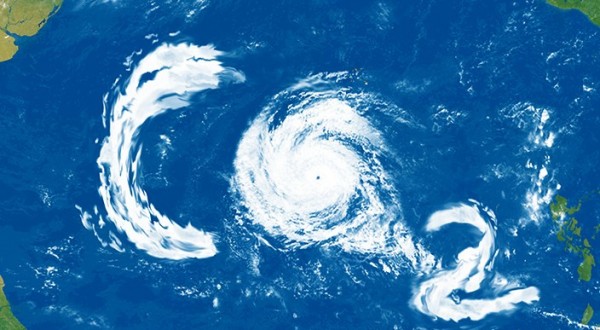As the Earth warmed coming out of the last ice age, the rate of plankton production off the Pacific Northwest coast decreased, a new study has found, though the amount of organic material making its way to the deep ocean actually increased.
This suggests that during future climate warming, the ocean may be more efficient than previously thought at absorbing carbon dioxide from the atmosphere – at least in some regions – but raises new concerns about impacts on marine life.
Results of the study are being published online today in Proceedings of the National Academy of Sciences.
The ocean absorbs carbon dioxide like a sponge; scientists say that about one-third of all CO2 emitted historically by burning fossil fuels is now in the ocean.
“This is a good news/bad news situation,” said Alan Mix, an Oregon State University oceanographer and co-author on the study. “It helps to slow the rise of CO2 in the atmosphere, but it makes the ocean more acidic.”
A major uncertainty has been how life in the ocean will respond to increasing CO2 and global warming. Growth of phytoplankton (microscopic plants such as diatoms) near the sea surface converts carbon dioxide into organic matter. When the plankton die, their organic remains either decompose in the surface ocean, or sink into the abyss.
This sinking of plankton effectively pumps CO2 out of the atmosphere. The so-called “biological pump” stores carbon in the deep sea, which is one way that biology influences global climate.
“It has been assumed that the amount of organic material that sinks to the sea floor would parallel that produced through photosynthesis near the sea surface,” said Mix, who is in OSU’s College of Earth, Ocean, and Atmospheric Sciences. “Surprisingly, our study found that even as plant growth decreased, past warming actually enhanced the biological export of carbon to the deep sea, at least in the northeast Pacific.”
Lead author Cristina Lopes, a visiting scientist at Oregon State who is based at the Instituto Português do Mar e da Atmosfera (IPMA, Portuguese Sea and Atmosphere Institute) in Portugal, and colleague Michal Kucera at the Center for Marine Environmental Sciences at Germany’s University of Bremen, calculated the productivity of marine plankton during the last major global warming event leading to the end of the last ice age. They did so by examining fossil diatoms buried in sediment off the coast of Oregon.
A breakthrough came from applying neural network methods now used by financial and insurance industries. “Inspired by brain research, we adapted these machine learning methods to analyze the fossil record for a new view of how the ocean works,” Kucera said.
The researchers found that during the ice age, the carbon trapped in plankton off Oregon was mostly recycled rather than exported to the deep ocean. As the ice age waned and the ocean warmed, plant growth decreased while carbon export increased.
“This counterintuitive effect was driven by a shift in ecosystems to one dominated by large diatoms,” Lopes said. “Those diatoms bloomed, then sank fast when they died.”
The researchers say their findings don’t necessarily mean that the ocean can continue to absorb increasing amounts of CO2 indefinitely, but that computer models of the ocean’s carbon cycle will need to take into account that plant productivity and carbon export are not always linked.
Evidence that export of carbon to the deep sea increases in some regions during long-term warming may help to slow down global climate change, but it may make some other impacts worse, the researchers point out. For example, as the extra sinking organic matter decomposes, it consumes oxygen dissolved in seawater – and loss of oxygen in the ocean is a growing concern.
Low-oxygen “dead zones” have appeared off the coast of Oregon several times in recent years.
“If these connections between warming and enhanced carbon export that we’ve found in past climate changes are triggered in the future, we can expect those marine dead zones to show up more frequently,” Mix said.
Source: Oregon State University
In the starting, I was explicit with you propecia before and after has changed my life. It has become much more fun, and now I have to run. Just as it is incredible to sit.






























































